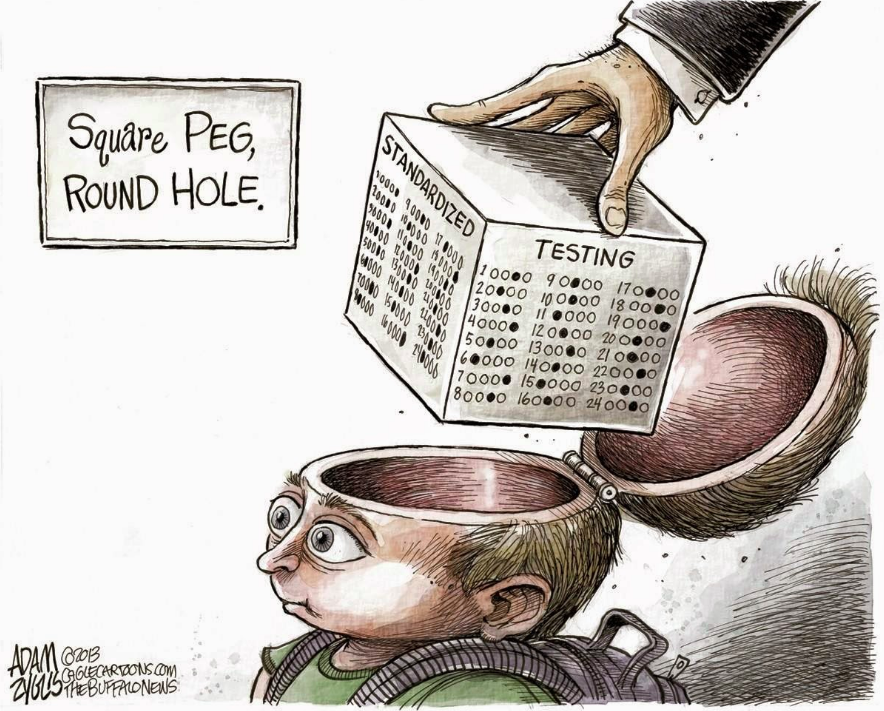Standardized tests need to go
Hours of studying. Sleepless nights. Anxiety spiking. Standardized testing takes a toll on most students, and it is something they are required to take; however, it is questioned whether this stress is necessary.
“They [standardized tests] are not a good way of telling whether a student understands a subject or not because everyone’s brain works differently. I know from experience because I struggle with test-taking (…) my ADHD and other mental health issues create challenges,” Hayden Bresler, junior, said.
Many argue that the assessments are a good indicator of whether or not students should earn credit for their courses; however, there are many factors that could affect a student’s score— including their personal life and access to study materials—making these grades an inaccurate measure of one’s intelligence or capacity to succeed.
“While I see value in most standardized tests, I find that they tend to give students tremendous stress and anxiety (…) As teachers, we are encouraged to differentiate our curriculum to fit the needs and learning styles of our students. Standardized tests, by definition, fail to reach all learners and only measure the intelligence of a specific type of student,” Margo Kemmerer, Etowah English teacher, said.
This form of testing may also disregard diversity. Students who attempt these exams come from a variety of backgrounds, multiple levels of proficiency in the English language, distinct cultural upbringings, and different learning and thinking styles. Yet, standardized testing treats them as if they are all identical, as it is suited to only a certain learning style. It also favors those who have a wealth advantage and can afford resources that help them prepare for the tests.
“The tests are not a good way to show intelligence, as it only tests for convergent thinking, which is just narrowing answers to a single solution (…) completely forgetting about divergent thinking and it is infinite possibilities,” Makayla Shaffer, senior, said.
Because so much emphasis is placed on performing well on exams, teachers have begun to ‘teach to the test,’ meaning that most of the classroom time is spent going over the material. With the lack of variety in the curriculum, a student’s real-world understanding is limited.
“(…) if you don’t do well, they [standardized tests] can change your future and impact many aspects of your life later on,” Peter Nguyen, freshman, said.
These tests can also be demeaning. A student may have deep knowledge of a particular subject but because their test score might have been low, it is not reflected. Although such grades do not represent intellect, many test-takers might feel otherwise.
“I think the modern school system is only aimed toward testing one type of smart, but people are good at different things, so where one student might fit the mold the system has laid out, another may fail—while both are equally talented,” Ava Banko, junior, said.
Standardized testing may do more harm than good, and it is time to start valuing creativity and real learning over test scores that do not properly represent students.

Hey! My name is Ila (ee-la), and I am a senior at Etowah. This is my fourth year on the staff, and I am the Editor-in-Chief this year. I love writing (obviously),...











